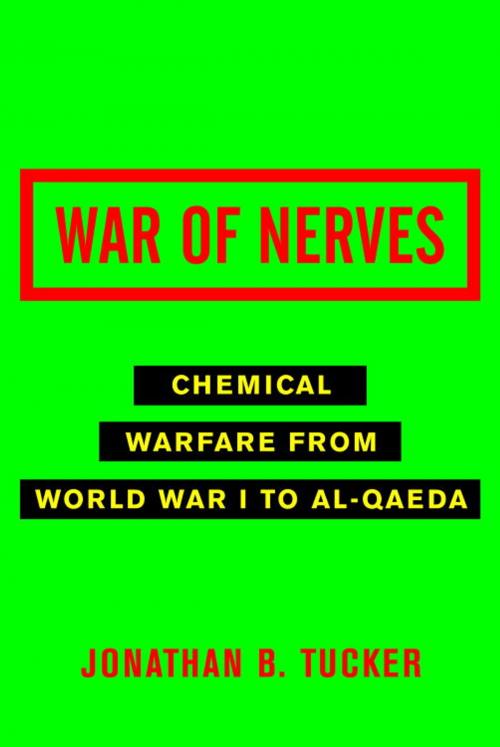War of Nerves
Chemical Warfare from World War I to Al-Qaeda
Nonfiction, History, Military, Biological & Chemical Warfare, Social & Cultural Studies, Political Science| Author: | Jonathan Tucker | ISBN: | 9780307430106 |
| Publisher: | Knopf Doubleday Publishing Group | Publication: | December 18, 2007 |
| Imprint: | Anchor | Language: | English |
| Author: | Jonathan Tucker |
| ISBN: | 9780307430106 |
| Publisher: | Knopf Doubleday Publishing Group |
| Publication: | December 18, 2007 |
| Imprint: | Anchor |
| Language: | English |
In this important and revelatory book, Jonathan Tucker, a leading expert on chemical and biological weapons, chronicles the lethal history of chemical warfare from World War I to the present.
At the turn of the twentieth century, the rise of synthetic chemistry made the large-scale use of toxic chemicals on the battlefield both feasible and cheap. Tucker explores the long debate over the military utility and morality of chemical warfare, from the first chlorine gas attack at Ypres in 1915 to Hitler’s reluctance to use nerve agents (he believed, incorrectly, that the U.S. could retaliate in kind) to Saddam Hussein’s gassing of his own people, and concludes with the emergent threat of chemical terrorism. Moving beyond history to the twenty-first century, War of Nerves makes clear that we are at a crossroads that could lead either to the further spread of these weapons or to their ultimate abolition.
In this important and revelatory book, Jonathan Tucker, a leading expert on chemical and biological weapons, chronicles the lethal history of chemical warfare from World War I to the present.
At the turn of the twentieth century, the rise of synthetic chemistry made the large-scale use of toxic chemicals on the battlefield both feasible and cheap. Tucker explores the long debate over the military utility and morality of chemical warfare, from the first chlorine gas attack at Ypres in 1915 to Hitler’s reluctance to use nerve agents (he believed, incorrectly, that the U.S. could retaliate in kind) to Saddam Hussein’s gassing of his own people, and concludes with the emergent threat of chemical terrorism. Moving beyond history to the twenty-first century, War of Nerves makes clear that we are at a crossroads that could lead either to the further spread of these weapons or to their ultimate abolition.















